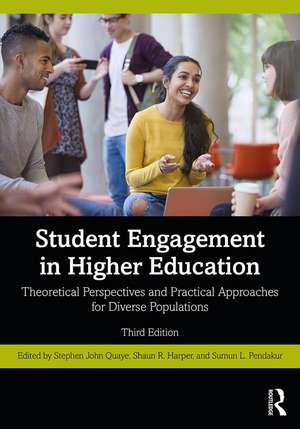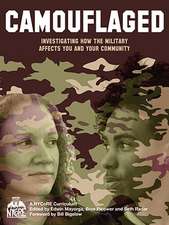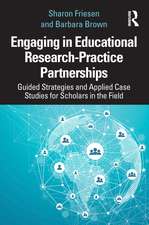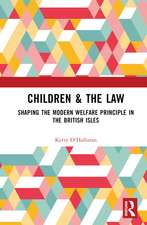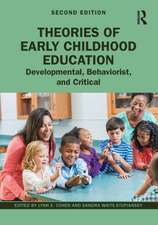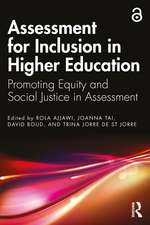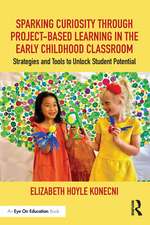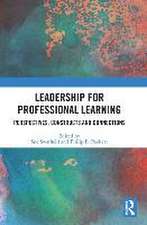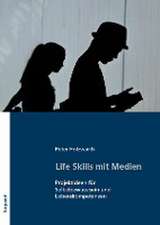Student Engagement in Higher Education: Theoretical Perspectives and Practical Approaches for Diverse Populations
Editat de Stephen John Quaye, Shaun R. Harper, Sumun L. Pendakuren Limba Engleză Hardback – 5 dec 2019
The forward-thinking, practical, anti-deficit-oriented strategies offered throughout the book are based on research and the collected professional wisdom of experienced educators and scholars at a range of postsecondary institutions. Current and future faculty members, higher education administrators, and student affairs educators will undoubtedly find this book complete with fresh ideas to reverse troubling engagement trends among various college student populations.
| Toate formatele și edițiile | Preț | Express |
|---|---|---|
| Paperback (1) | 503.48 lei 43-57 zile | |
| Taylor & Francis – 9 dec 2019 | 503.48 lei 43-57 zile | |
| Hardback (1) | 1072.74 lei 43-57 zile | |
| Taylor & Francis – 5 dec 2019 | 1072.74 lei 43-57 zile |
Preț: 1072.74 lei
Preț vechi: 1308.23 lei
-18% Nou
Puncte Express: 1609
Preț estimativ în valută:
205.33€ • 223.11$ • 172.59£
205.33€ • 223.11$ • 172.59£
Carte tipărită la comandă
Livrare economică 21 aprilie-05 mai
Preluare comenzi: 021 569.72.76
Specificații
ISBN-13: 9780367002220
ISBN-10: 0367002221
Pagini: 436
Ilustrații: 10
Dimensiuni: 178 x 254 x 24 mm
Greutate: 0.97 kg
Ediția:3rd edition
Editura: Taylor & Francis
Colecția Routledge
Locul publicării:Oxford, United Kingdom
ISBN-10: 0367002221
Pagini: 436
Ilustrații: 10
Dimensiuni: 178 x 254 x 24 mm
Greutate: 0.97 kg
Ediția:3rd edition
Editura: Taylor & Francis
Colecția Routledge
Locul publicării:Oxford, United Kingdom
Public țintă
Undergraduate CoreCuprins
Foreword
Lori D. Patton
Chapter 1: The Heart of Our Work: Equitable Engagement for Students in U.S. Higher Education
Sumun L. Pendakur, Stephen John Quaye, and Shaun R. Harper
Chapter 2: Engaging Students of Color
Samuel D. Museus, Kimberly A. Griffin, and Stephen John Quaye
Chapter 3: Engaging Multiracial Students
C. Casey Ozaki, Marc P. Johnston-Guerrero, and Kristen A. Renn
Chapter 4: Engaging Transracial Asian American Adoptee Students
Aeriel A. Ashlee
Chapter 5: Engaging Indigenous Students
Erin Kahunawaikaʻala Wright and Heather J. Shotton
Chapter 6: Engaging White Students
Nolan L. Cabrera, Chris Corces-Zimmerman, and Jamie Utt
Chapter 7: Engaging International Students
Jenny J. Lee and Santiago Castiello-Gutiérrez
Chapter 8: Engaging Undocumented Students
Susana M. Muñoz
Chapter 9: Engaging Student Activists
Charles H.F. Davis III, Sy Stokes, and Demetri L. Morgan
Chapter 10: Engaging Queer Students
Shaun R. Harper and Kaylan S. Baxter
Chapter 11: Engaging Transgender Students
D. Chase J. Catalano, Z Nicolazzo, and T.J. Jourian
Chapter 12: Engaging Cisgender Women and Men Students
Christopher M. Fiorello and Jaime Lester
Chapter 13: Engaging Religious Minority Students
Shafiqa Ahmadi, Darnell G. Cole, and Bo Lee
Chapter 14: Engaging Students with Disabilities
Kirsten R. Brown and Ellen M. Broido
Chapter 15: Engaging Student-Athletes
Joy Gaston Gayles and Rebecca E. Crandall
Chapter 16: Engaging Justice-Involved Students
Royel M. Johnson and Joshua Abreu
Chapter 17: Engaging First-Generation Students
Georgia Kouzoukas
Chapter 18: Engaging Poor and Working-Class Students
Sonja Ardoin
Chapter 19: Engaging Commuter, Part-Time, and Returning Adult Students
Barbara Jacoby
Chapter 20: Engaging Military-Connected Students
Stephanie Bondi, Denise N. Williams-Klotz, Ann M. Gansemer-Topf, and Corey B. Rumann
Chapter 21: Engaging Graduate and Professional Students
Susan K. Gardner and Marco Barker
Chapter 22: Engaging Student-Parents
Margaret W. Sallee
Afterword
Vijay Pendakur
Lori D. Patton
Chapter 1: The Heart of Our Work: Equitable Engagement for Students in U.S. Higher Education
Sumun L. Pendakur, Stephen John Quaye, and Shaun R. Harper
Chapter 2: Engaging Students of Color
Samuel D. Museus, Kimberly A. Griffin, and Stephen John Quaye
Chapter 3: Engaging Multiracial Students
C. Casey Ozaki, Marc P. Johnston-Guerrero, and Kristen A. Renn
Chapter 4: Engaging Transracial Asian American Adoptee Students
Aeriel A. Ashlee
Chapter 5: Engaging Indigenous Students
Erin Kahunawaikaʻala Wright and Heather J. Shotton
Chapter 6: Engaging White Students
Nolan L. Cabrera, Chris Corces-Zimmerman, and Jamie Utt
Chapter 7: Engaging International Students
Jenny J. Lee and Santiago Castiello-Gutiérrez
Chapter 8: Engaging Undocumented Students
Susana M. Muñoz
Chapter 9: Engaging Student Activists
Charles H.F. Davis III, Sy Stokes, and Demetri L. Morgan
Chapter 10: Engaging Queer Students
Shaun R. Harper and Kaylan S. Baxter
Chapter 11: Engaging Transgender Students
D. Chase J. Catalano, Z Nicolazzo, and T.J. Jourian
Chapter 12: Engaging Cisgender Women and Men Students
Christopher M. Fiorello and Jaime Lester
Chapter 13: Engaging Religious Minority Students
Shafiqa Ahmadi, Darnell G. Cole, and Bo Lee
Chapter 14: Engaging Students with Disabilities
Kirsten R. Brown and Ellen M. Broido
Chapter 15: Engaging Student-Athletes
Joy Gaston Gayles and Rebecca E. Crandall
Chapter 16: Engaging Justice-Involved Students
Royel M. Johnson and Joshua Abreu
Chapter 17: Engaging First-Generation Students
Georgia Kouzoukas
Chapter 18: Engaging Poor and Working-Class Students
Sonja Ardoin
Chapter 19: Engaging Commuter, Part-Time, and Returning Adult Students
Barbara Jacoby
Chapter 20: Engaging Military-Connected Students
Stephanie Bondi, Denise N. Williams-Klotz, Ann M. Gansemer-Topf, and Corey B. Rumann
Chapter 21: Engaging Graduate and Professional Students
Susan K. Gardner and Marco Barker
Chapter 22: Engaging Student-Parents
Margaret W. Sallee
Afterword
Vijay Pendakur
Notă biografică
Stephen John Quaye is Past President of ACPA: College Student Educators International, and Associate Professor of Higher Education and Student Affairs at The Ohio State University, USA.
Shaun R. Harper is President-Elect of the American Educational Research Association, Executive Director of the USC Race and Equity Center, and a Provost Professor in the Rossier School of Education and Marshall School of Business at University of Southern California, USA.
Sumun L. Pendakur is the Chief Learning Officer and Director of the USC Equity Institutes at the USC Race and Equity Center at University of Southern California, USA.
Shaun R. Harper is President-Elect of the American Educational Research Association, Executive Director of the USC Race and Equity Center, and a Provost Professor in the Rossier School of Education and Marshall School of Business at University of Southern California, USA.
Sumun L. Pendakur is the Chief Learning Officer and Director of the USC Equity Institutes at the USC Race and Equity Center at University of Southern California, USA.
Recenzii
"The third edition reinforces the relevancy and continues the brilliance of previous editions by highlighting the urgency for the transformation of educators and institutional structures to be more knowledgeable and expansive, not just inclusive and diverse. With a focus on theory and practice, this book is a required read for those who seek to educate students in our current environment."
— Tia Brown McNair, Vice President for Diversity, Equity, and Student Success, American Association of Colleges and Universities
"Quaye, Harper, and Pendakur have reassembled a book that continues to provide fresh insights by offering a more nuanced understanding of student engagement and persistence, which takes seriously the promise of higher education to close opportunity gaps. The chapters provide deliberate and culturally responsive strategies that address the challenges that we actually have in colleges and universities rather than the ones that we would like to have. This edition is an especially timely and sobering counterweight to the increasingly pervasive nonsense that ignores the educational realities associated with diversity."
— Mitchell J. Chang, Professor of Higher Education and Organizational Change, UCLA
"As our work increasingly focuses on student engagement and belonging, this timely third volume demonstrates the unexamined ways our campuses were not designed for today’s students. By exploring a nuanced and broad array of relevant student identities, often marginalized, it tells us precisely how to make all of our students the center of our attention."
— Penny Rue, Vice President for Campus Life, Wake Forest University
"This edited volume is undeniably the most important contribution to moving the student engagement literature to a critical space that broadens how readers think…it continues to push the envelope of its predecessors by presenting the complexities and experiences of students whose lives are rarely the center of attention in the larger body of work on student engagement…it is precisely the resource that researchers, institutional leaders, and policymakers need in order to truly meet the needs of all students who aspire to attain a college degree."
– From the foreword by Lori Patton Davis, Department Chair in Educational Studies, The Ohio State University
"This third edition of Student Engagement in Higher Education is a vital blueprint for faculty, administrators, and student affairs educators to more successfully center marginalized, vulnerable, and underserved communities in their work and approach engaging these communities with an equity frame."
--From the afterword by Vijay Pendakur, Robert W. and Elizabeth C. Staley Dean of Students, Cornell University
— Tia Brown McNair, Vice President for Diversity, Equity, and Student Success, American Association of Colleges and Universities
"Quaye, Harper, and Pendakur have reassembled a book that continues to provide fresh insights by offering a more nuanced understanding of student engagement and persistence, which takes seriously the promise of higher education to close opportunity gaps. The chapters provide deliberate and culturally responsive strategies that address the challenges that we actually have in colleges and universities rather than the ones that we would like to have. This edition is an especially timely and sobering counterweight to the increasingly pervasive nonsense that ignores the educational realities associated with diversity."
— Mitchell J. Chang, Professor of Higher Education and Organizational Change, UCLA
"As our work increasingly focuses on student engagement and belonging, this timely third volume demonstrates the unexamined ways our campuses were not designed for today’s students. By exploring a nuanced and broad array of relevant student identities, often marginalized, it tells us precisely how to make all of our students the center of our attention."
— Penny Rue, Vice President for Campus Life, Wake Forest University
"This edited volume is undeniably the most important contribution to moving the student engagement literature to a critical space that broadens how readers think…it continues to push the envelope of its predecessors by presenting the complexities and experiences of students whose lives are rarely the center of attention in the larger body of work on student engagement…it is precisely the resource that researchers, institutional leaders, and policymakers need in order to truly meet the needs of all students who aspire to attain a college degree."
– From the foreword by Lori Patton Davis, Department Chair in Educational Studies, The Ohio State University
"This third edition of Student Engagement in Higher Education is a vital blueprint for faculty, administrators, and student affairs educators to more successfully center marginalized, vulnerable, and underserved communities in their work and approach engaging these communities with an equity frame."
--From the afterword by Vijay Pendakur, Robert W. and Elizabeth C. Staley Dean of Students, Cornell University
Descriere
In the updated edition of this important volume, the editors and chapter contributors explore how diverse populations of students experience college differently and encounter group-specific barriers to success.
